Candlemas and Carnival
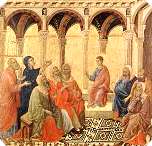 As happens roughly once every four years or so in Reform Unitarianism, Candlemas is falling on Carnival Thursday.
As happens roughly once every four years or so in Reform Unitarianism, Candlemas is falling on Carnival Thursday.
In most Christian churches, Candlemas celebrates only the presentation of Jesus at the Temple as a baby by Mary and Joseph. However, AUR also celebrates another Temple-related event on this day: the Disputation, when a 12-year-old Jesus debated the Torah with Jewish elders.
In this way, both biblical narratives of the life of Jesus between the Nativity and Ministry are brought together on one day, the first Thursday in February. Candlemas is a special day for celebrating children and childhood, and particularly for recognizing the maturation from helpless infancy to the assertive character of youth.
Carnival, on the other hand, has traditionally been for revelry of a more exuberant and adolescent nature, and in AUR a moment of respite between the Winterval fast starting on Resolution Day and the Lenten fast beginning Ash Wednesday.
Candlemas-Carnival Conjunct!
From the canonical scriptures, we know nothing of Jesus’ youth after the Disputation.* But, there are clues in his later ministry as to how he spent his youth, clues that bring Christian meaning to Carnival … and a little Carnival spirit to an often-staid and dry Christianity.
In the Gospel of Matthew (11:18-19), Jesus is recorded as saying:
John came neither eating nor drinking, and they say, ‘He has a demon!’ The Son of Man came eating and drinking, and they say, ‘Look, a glutton and a drunkard, a friend of tax collectors and sinners!’ Yet Wisdom is vindicated by Her deeds.
Jesus clearly liked good drink, good food, and interesting company!
This is, of course, not to endorse the vicious extremes of drunkenness or alcoholism, but as part of a general celebration of the pleasures of God’s Creation, including food, music, and the company of our neighbors, Carnival certainly has Christian meaning with a liturgical connection to the life of Jesus himself.
_
NOTE: Carnival celebrations for Reform Unitarians should not start (or continue, in years when Carnival begins before Candlemas) until after 6 p.m. that on Candlemas Thursday.
_
* Non-canonical “infancy” Gospels, however, contain some interesting (if dubious) tales.

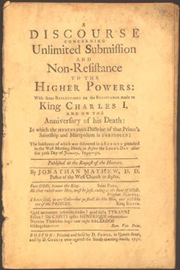
 Genseric, meaning Spear King, leader of the much-maligned Vandals, was one of the last Unitarian Christian leaders in the ancient world. Why AUR would want to celebrate the life of a man who sacked Rome, persecuted other Christians, and whose people gave us the word “vandalize”?
Genseric, meaning Spear King, leader of the much-maligned Vandals, was one of the last Unitarian Christian leaders in the ancient world. Why AUR would want to celebrate the life of a man who sacked Rome, persecuted other Christians, and whose people gave us the word “vandalize”? Henry Knox was the son of a ship’s captain who died when the boy was nine. Henry began working as a bookstore clerk at 12 to support his mother, and later opened his own bookstore. If Knox’s story ended there, it would be a remarkable tale of trial, strength, survival, and ingenuity.
Henry Knox was the son of a ship’s captain who died when the boy was nine. Henry began working as a bookstore clerk at 12 to support his mother, and later opened his own bookstore. If Knox’s story ended there, it would be a remarkable tale of trial, strength, survival, and ingenuity.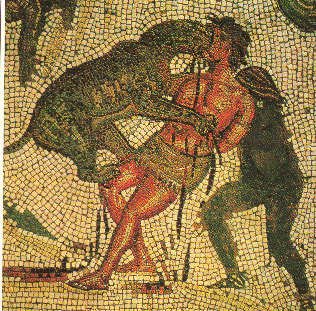 Today is the First of the
Today is the First of the 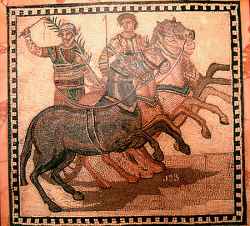 January 13th is the seventh of the
January 13th is the seventh of the  January 12th is John Hancock Day for American Unitarian Reform, the 6th Day of Defiance on the AUR Interval Season liturgical calendar.
January 12th is John Hancock Day for American Unitarian Reform, the 6th Day of Defiance on the AUR Interval Season liturgical calendar.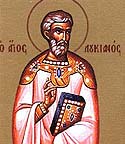 Today is the first of the 12 Days of Defiance that begin the Winterval Season, the feast day of St. Lucian. Lucian was the teacher of both St. Arius and St. Eusebius, the bishop who baptized Constantine, finally Christianizing the Emperor after a lifetime of religious ambiguity.
Today is the first of the 12 Days of Defiance that begin the Winterval Season, the feast day of St. Lucian. Lucian was the teacher of both St. Arius and St. Eusebius, the bishop who baptized Constantine, finally Christianizing the Emperor after a lifetime of religious ambiguity.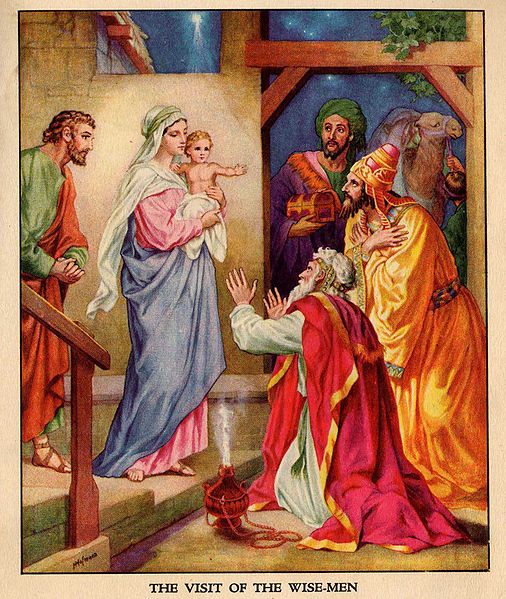 In the ancient church, the 6th of January was observed in celebration of not only the birth of Jesus and the adoration of the Magi and shepherds, but also other events such as his baptism by John and the wedding at Cana.
In the ancient church, the 6th of January was observed in celebration of not only the birth of Jesus and the adoration of the Magi and shepherds, but also other events such as his baptism by John and the wedding at Cana.